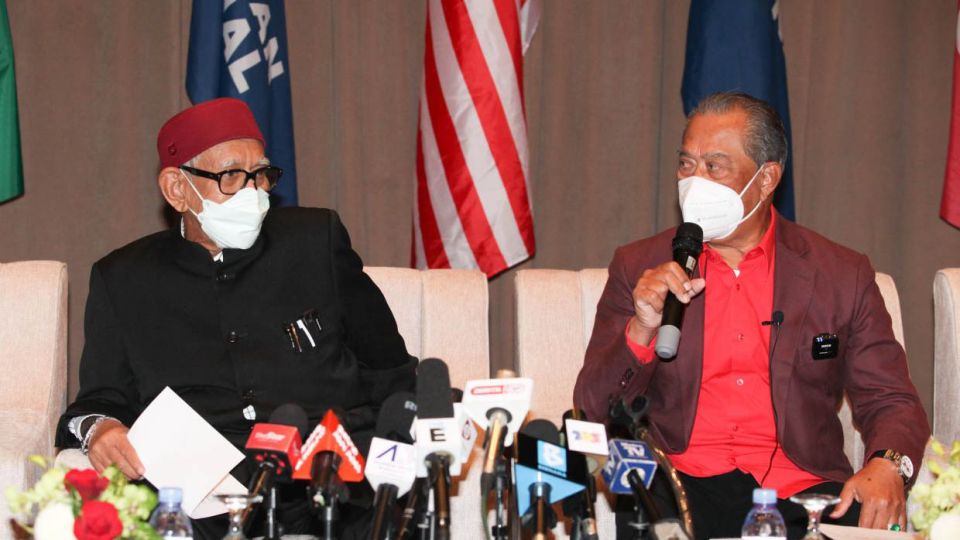January 31, 2022
KUALA LUMPUR – But its results will prompt the bigger question: Will GE15 be announced soon after?
CURRENTLY, Malaysian politics is messy.
This makes the upcoming Johor election more exciting than the Sarawak polls (which was mainly about how many seats the ruling Gabungan Parti Sarawak could win) and the Melaka election (which was mainly about whether Umno could win more than half of the state seats).
Before the 14th General Election in 2018, a state election in Johor would have been neater and easier to calculate. It would have been Barisan Nasional versus Pakatan Harapan with PAS as a spoiler.
We knew which party was against which party – Barisan with Umno, MCA, MIC, Gerakan (the four dominant component parties in Peninsular Malaysia) versus PKR, DAP, Amanah and Parti Pribumi Bersatu Malaysia of Pakatan.
By-elections held during Pakatan’s reign from 2018 to 2020 were straight fights: Pakatan versus Barisan/Muafakat Nasional (the alliance between Umno and PAS). The Barisan/Muafakat alliance won most of the by-elections.
But now things are much messier.
In the Johor polls, expect at least a four-cornered fight for each of the 56 state seats: Barisan versus Pakatan versus Perikatan Nasional versus all the new parties, such as Muda, Pejuang and Parti Warisan.
The fall of Bersatu president Tan Sri Muhyiddin Yassin as Prime Minister in August 2021 has also complicated the political landscape.
Perikatan – comprising Bersatu, PAS, Gerakan, Sabah Star and SAPP – are in Prime Minister Datuk Seri Ismail Sabri Yaakob’s Umno-led Federal Government, but it fought Barisan in all 28 state seats in the Melaka polls.
Umno, Bersatu and PAS are sleeping together in the Federal Government’s bed, but Umno and Bersatu/PAS are publicly bickering over the fact that Umno dissolved the Johor state assembly without seeking the other two parties’ consent.
Pakatan is also messy. PKR, DAP and Amanah are sleeping together in the coalition of hope bed, but they have different dreams.
PKR has decided to use its logo for the Johor election whereas DAP and Amanah will use the Pakatan logo.
The big question is, will DAP and Amanah supporters vote for PKR and its logo, and will PKR voters support DAP and Amanah with the Pakatan logo?
We also have new political parties which didn’t exist before GE14, like Muda, Pejuang and Parti Bangsa Malaysia (PBM) as well as Parti Warisan, a Sabah-based party now entering national politics and moving into the fray on the peninsula for the first time.
The Johor election will answer a popular question that politicians, diplomats, political analysts and the public have all asked me in some form or the other: “Who will Undi18 voters support in GE15?”
My response is: “Do you think the new 18-year-old voters will play a big role in determining election results?”
The Undi18 segment – voters aged 18 to 20 – will be allowed to vote in the Johor election, stepping into the political process for the first time. About 6% of 2.5 million Johor voters will be from this age group.
My next question is, “Out of 10 Undi18 voters that you know, how many do you think will go out to vote?” On average, the answer I got was four out of 10.
The Johor polls might also answer the possibly false perception that Muda, a youth-centric party led by Muar MP Syed Saddiq Syed Abdul Rahman, is popular with the Undi18 voters.
The election will test the popularity of new parties Muda, Pejuang, PBM and Warisan (outside of Sabah). So far, the four parties have indicated that they will go solo.
Will these parties steal votes away from the big three coalitions, Barisan, Perikatan and Pakatan? Or will these state elections show that they too need to be part of a big coalition to make a difference?
It looks like Pakatan is only interested in Muda (the party that some say can win Undi18 votes) and not Pejuang and Warisan joining its coalition to fight Barisan, Perikatan and the smaller parties.
The other popular question is about Bersatu’s viability after the Johor polls now that two of its incumbent assemblymen, Mazlan Bujang and Datuk Mohd Izhar Ahmad, quit the party to support Umno. The resignation of the Puteri Wangsa and Larkin assemblymen prompted a Bersatu contact to wonder, “Is Bersatu doomed?”
Playing the devil’s advocate, I replied: “Wasn’t it doomed once Muhyiddin was no longer PM, especially as Umno – now back in Federal power – wants Bersatu dead, politically?”
“Should I ponder what next?” the Bersatu contact then wondered.
He is not alone in thinking about what’s next: other Bersatu members are waiting to see how Perikatan, which is led by Bersatu, performs in the Johor elections. If the coalition does badly (winning only one, two or three seats), they may have to rethink which party best serves their political interests.
PAS too might have to rethink its commitment to the Perikatan coalition. If the Islamist party does poorly in Johor, there might be pressure on its president, Datuk Seri Abdul Hadi Awang, to “divorce” Muhyiddin’s party.
PAS is likely to do poorly in Johor as the state is not its stronghold. It won Bukit Pasir, the only Johor state seat it got in GE14, by a fluke – a Bersatu candidate was disqualified and in the resulting straight fight against Umno, pro-Pakatan voters supported PAS.
If Barisan wins big in Johor, the question will be: Will it trigger GE15 soon? Or if Umno can’t force the Prime Minister – its own vice president – to call for a general election, will it force more state elections in states like Perak?
Questions will be answered after the Johor polls. But a bigger question will be raised depending on the results: GE15 soon?


